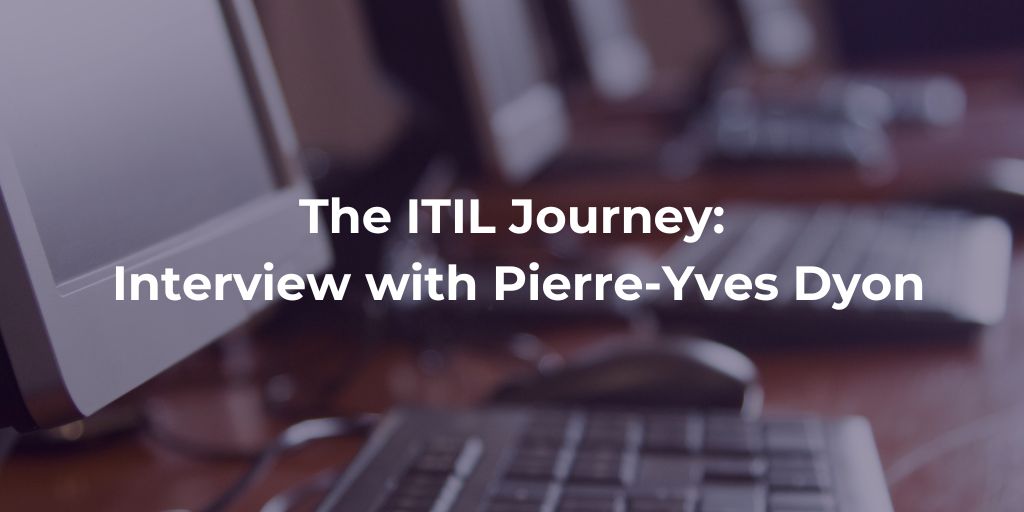What is your Role and What is it that you actually do?
I am working at Easi, a Belgian IT company. At our core, we want to help mid-sized and large companies achieve better and smarter performance by using humanised technology.
To do this, we offer a portfolio of services, ranging from specific applications (financial management, CRM, collaborative software, strategy execution management) to infrastructure (on-premises or cloud), networking and security.
As Project Manager and Service Delivery Manager for our infrastructure, networking & security customers, I am leading a variety of projects. This can range from infrastructure replacement, cloud migrations, SD-WAN (software-defined wide area network) implementations or security hardening projects, and others.
Once those Projects are finished, my responsibility is to keep managing the ongoing relationship with some of those customers through Managed Services contracts. This is how we are making sure that the services we are delivering to our customers, keep running smoothly and that the necessary evolutions happen. This will then lead to new projects, thus completing the circle.
And, for some customers who use several of our solutions, I can coordinate and lead the actions of our different business lines globally. On top of the organisational aspects, my role entails bringing some of the “human touch” to our services.
How did you arrive at your current position?
Before Easi, I was working in a large American IT company as System Engineer on Unix Systems and Team Leader. From there I evolved into the position of pre-sales architect, working on outsourcing and Managed Services contracts. This expanded my overall knowledge of the IT infrastructure world.
This background has given me a solid technical foundation on which I have been able to build additional organisational capabilities, also by growing in a large and mature organisation.
Five years ago I started for Easi as Project Manager. And even if my position has remained the same, the job content has kept on evolving, together with the growth of the company and the expansion of solutions that we are offering.
How do you use the ITIL framework within your organisation? Why is this important?
If we look at the fundamentals of ITIL, it is about creating value. And value is obviously what we want to achieve in order to be meaningful with our solutions. But saying this is not enough, we need to focus so that our efforts are directed towards consistently delivering value.
That’s why I think that the ITIL framework is important: if we can consistently implement its different aspects, and if we can make sure that people are trained to understand the reason behind this, we will succeed.
Of course, ITIL is a journey and it would be presumptuous to think that we have it all figured out.
The 7 Guiding Principles are a good place to start and give a sense of direction. By starting where we are and progressing iteratively with feedback we were already able to implement several practices within our organisation.
And, from there, we can apply continual improvement to those practices and also define the next steps in our journey.
The implementation of the ITIL practices ensures that our processes, which are supporting our services, are well defined and as complete as possible. If everybody understands and applies these processes correctly, we can be more efficient and focus on delivering the expected objective.
Another very important aspect of ITIL is that it’s a standard which is used everywhere. This ensures that we are speaking the same language as our customers who are also using ITIL, and we can work together efficiently. With our experience, we can also help some of our customers to implement ITIL further in their own organisation to ease the co-creation of value together.
How can you create value through ITIL? What are the benefits that ITIL, especially in the new version, can bring?
I’ll start with the last part of the question: I think that ITIL 4 does a great job at bringing more context and coherence to the core which was already existing in ITIL v3.
It’s easy to start with the 7 Guiding Principles and to ask yourself: is what I am doing in line with those principles? As a matter of fact, the principles are displayed on the wall of the office which I am sharing with other Service Delivery Managers!
Starting from there, you can dive deeper into the Service Value System and apply the necessary building blocks. What is the value that you are trying to deliver? Can you already build it based on practices that you already have in place, and can optimise? Do you need to implement new practices supporting a new value stream?
Crucial is that you must always keep the 7 Guiding Principles in mind while designing those new services. For example by “progressing iteratively with feedback”, you can make sure that you confront your new ideas with reality as soon as possible. This allows you to already make the necessary adjustments.
Another important element is to build continual improvement in all aspects of your services. If you truly enable everyone to submit ideas for improvement and if you take the time to learn some lessons from your past projects, you will be able to change what’s necessary much quicker.
What advice can you give to professionals who want to implement ITIL4?
I will again refer to one of the Guiding Principles: start where you are.
Even if you don’t realise it, there are certainly things that you are doing today which are not that far from the best practices of ITIL. Starting from those, you can make improvements and make sure to focus on the value.
You don’t have to think about ITIL like a monolithic set of rules but rather as something that you will be able to implement progressively and tailor to your specific needs, while keeping a holistic view on your organisation. You will be able to reap the benefits of that simple and practical approach quicker than when you want to start with everything at once.
In parallel, it’s important to educate the population which will be in contact with the new implementation. If they can understand why the changes are being implemented (= to create value), they will be much more likely to collaborate with those changes. They will also see that continual improvement is at the heart of ITIL and take a more active part in the process.
Is there a certain certification track you would advise to organisations that want to improve and change results? Which one and why?
I think it all depends on the part that you want to focus on.
The ITIL 4 certification track is the most complete, in the sense that it will include all aspects of the lifecycle of services within your organisation. You can start with the Foundation certification and build up from there if you want to focus on specific areas.
But, next to this, I also found the Change Management certification very meaningful. This corresponds to the ITIL practice Organisational Change Management. Because, as you will implement changes into your organisation, you need to make sure that those changes are well managed and accepted by all the stakeholders, including your employees and also your clients.
And implementing those changes requires a good Project Management methodology. That’s where for example PRINCE2 comes into play to help you have a structured approach to the management of your projects. Other methodologies might also apply, depending on your context. And, by the way, Project Management is also an ITIL practice!
On a more personal note, how do you see your professional growth in the coming years? What can we expect from you?
I really like what I am doing right now, the team I am working with and I’m really happy about what we have been doing at Easi. I am amazed how much we have been able to improve our way of working over the last few years. We are growing, our customers are growing, and we need to keep this pace of evolution. I want to play an active part in this and, by improving my own skills, I want to be able to also bring our way of working to the next level.









